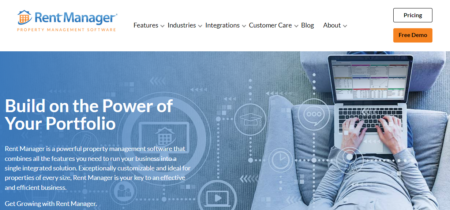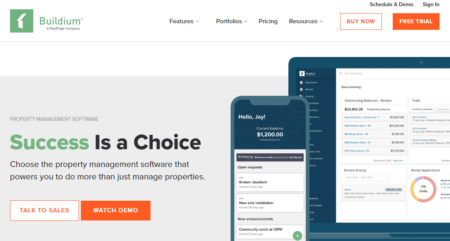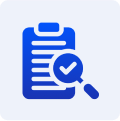
Property Management Automation: What is it, Tips and Tools
Suprabhat Sen | February 20, 2024 , 8 min read
Table Of Content
Managing a property involves juggling countless tasks—screening applicants, drafting lease agreements, collecting rent, resolving tenant issues, handling maintenance, and overseeing finances. It’s a lot, especially when you’re selective about tenants (no pets, no Section 8, max 5 occupants, no smoking).
But you don’t have to do it all manually. With property management automation, you can simplify and accelerate these processes—automatically screen applicants, generate financial reports, and manage tenant communications with just a few clicks.
In this blog post, we’ll explore the key advantages of automating property management, share practical implementation tips, and recommend top tools to help you run your property more efficiently. Let’s dive in!
Key Takeaways
- Property management automation uses software to handle tasks like tenant screening, rent collection, maintenance tracking, and financial reporting.
- Automating tasks improves efficiency by accelerating tenant screening, streamlining accounting processes, automating communication, and ensuring timely maintenance.
- Successful implementation requires identifying workflow pain points, selecting the right software, training your team, and creating a clear rollout plan.
- By integrating automation into property management, landlords and property managers can scale operations, improve tenant satisfaction and maintain consistent communication and compliance.
What is Property Management Automation?
Property management automation is using software or tools to do tasks that would typically be done manually, allowing technology to handle them on your behalf.
This doesn’t imply that all your tasks can be automated. While you can’t automate everything (yet), there are several critical management tasks you can currently fully or partially automate with the appropriate tool.
For example, automating what used to require time and effort for various types of screening can now be achieved with certain tools, requiring just a few clicks. This results in time savings for every applicant you screen.
When multiplied over several years of property management, this could save you hundreds of hours.
If automating one task can save you and your team hundreds of hours, stress, and headaches, just think about the impact of automating several critical tasks.
Let’s discuss a few benefits of automating property management next.
Benefits of Property Management Automation
Now that we know what property management automation is, let’s understand what this can do for your business. Below are a few benefits of automating property management.
1. Tenant Screening
Based on your specific criteria, tenants are screened automatically without having to do so manually. For example, the process could be running background checks on each applicant and checking credit reports and rental history. This speeds up the screening process, which could have taken weeks to do manually.
2. Accounting
Traditional accounting processes are known for their time-consuming nature and heavy reliance on manual data entry. This manual approach often leads to slow turnarounds and inaccurate reporting for property management companies.
To overcome these challenges, property managers are increasingly adopting financial automation software. This technology streamlines accounting tasks, enabling faster and more accurate payment and billing processes. Additionally, it helps improve cash flow management and reduces administrative burdens.
3. Communication
The software can also send notifications and reminders to tenants regarding rent or maintenance updates. This ensures timely communication with tenants and property owners, reducing the need for frequent calls and check-ins on pending matters, which can sometimes be irritating.
4. Maintenance Requests
Tenants can submit maintenance requests to property managers or owners online. These requests can be automatically sorted and assigned to the relevant maintenance staff or vendor. The software monitors the progress and completion of these tasks, improving response times and tenant satisfaction.
5. Compliance
Property managers cannot afford to spend excessive time drafting letters and chasing after individuals when dealing with community violations related to pet policies, rental rules, and trash disposal.
Property management software allows property managers to automate the entire compliance management process. With property management tools, they can automatically track issues, communicate with residents, and escalate violations. Automating compliance helps standardize processes, ensuring professional and effective communication at every stage.
Tips for Implementing Property Management Automation
Let’s look at a few tips for implementing property management automation that can take your business to the next level.
1. Identify Pain Points
Before implementing automation, identify the specific pain points and areas where automation can make the most impact. This could include tasks like rent collection, maintenance requests, tenant communications, or financial reporting.
2. Train Your Team
Provide thorough training to your staff on how to use the new automation tools. This will help them adapt quickly and maximize the benefits of the new system.
3. Plan and Prioritize
Create a detailed implementation plan that outlines the timeline, resources needed, and key milestones. Prioritize tasks based on their impact and complexity to ensure a smooth transition.
4. Choose the Right Software
Select a property management software that aligns with your needs and integrates well with your existing systems. Look for features like online rent collection, maintenance tracking, tenant portals, and accounting integration.
Talking about choosing the right software, the next section lists tools and software for automating property management.
Popular Tools and Software for Automating Property Management
Property management software is a fundamental tool for streamlining property management processes. Here are some popular options:
1. Rent Manager
Rent Manager consolidates all the essential features for running your business into one integrated solution. It is suitable for properties of any size, enabling property management companies to expand their operations and enhance efficiency. Rent Manager provides various tools, such as accounting, reporting, marketing and leasing, business operations, maintenance, and software customization.
Pricing starts at $1 per unit per month for the basic version and $1 per unit per month for the plus version, both with unlimited users.
2. PropertyWare
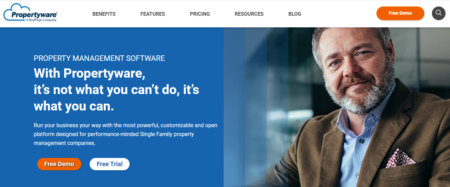
Propertyware is an adaptable and open platform designed specifically for single-family property management companies. This property management software offers the flexibility to create custom fields, dashboards, and reports.
With Propertyware, property management companies can:
- Manage online leases
- Oversee properties through their portal
- Track maintenance requests and work orders
- Manage online accounting and payments
- Utilize marketing tools
- Streamline tenant screening
Additionally, this software features an open API, enabling seamless two-way data connection.
Propertyware offers various pricing tiers:
- Basic: $100 per unit per month, with a $250 monthly minimum plus an implementation fee of 2X the monthly subscription price
- Plus: $150 per unit per month, with a $350 monthly minimum plus an implementation fee of 2X the monthly subscription price
- Premium: $200 per unit per month, with a $450 monthly minimum plus an implementation fee of 2X the monthly subscription price.
3. Buildium
Buildium empowers landlords, professional property management companies, and self-managed condos and homeowners associations to efficiently manage their portfolios and operations with its comprehensive residential and association management software. This property management solution offers a range of tools, including:
- Property, company, and vendor accounting
- Maintenance request management
- Rental listing management
- Resident screening
- Community association management
- Onboarding and customer support
- Open API
Buildium provides three pricing packages to cater to different needs:
- Essential (starting at $55/month): Ideal for those looking to streamline their day-to-day operations and establish a centralized platform for their business.
- Growth (starting at $174/month): Designed for businesses that are expanding and require additional features, support, and performance insights to support their growth.
- Premium (starting at $375/month): Tailored for businesses operating at a higher level, offering everything in the Growth package along with Open API, insights-to-action, and potential cost savings.
Conclusion
For property management, the future has arrived. Despite how cheesy it may sound, automating several property management tasks can save you time and stress. To get the most out of your properties and keep your peace of mind, you should definitely consider using a property management automation system.
Some of the listed software may not fit your needs at the moment and you may need something more customized.
ScaleupAlly can build a custom product to help you automate all aspects of your rental process, including automating monthly rent collection, providing easy access to a comprehensive chart of accounts, offering reporting, such as the rent roll report, ensuring seamless synchronization with your bank account, facilitating easy integration with QuickBooks Online and many more. Contact our team and schedule a call. Let’s make your work easier!
Related Blogs
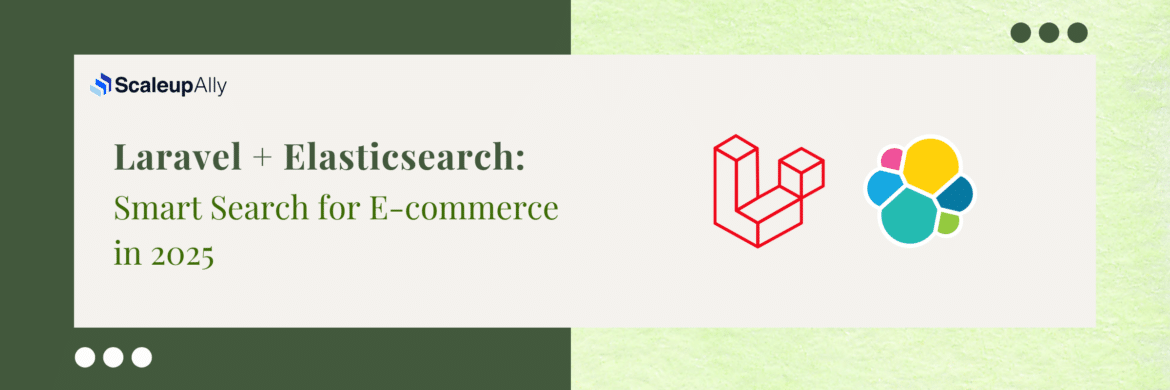
Laravel + Elasticsearch: Smart Search for E-commerce in 2025
Learn how to integrate Elasticsearch with Laravel, from setup and configuration to indexing. Improve your app's search performance using Laravel Elasticsearch.
ScaleupAlly Team
Jul 3 ,
15 min read
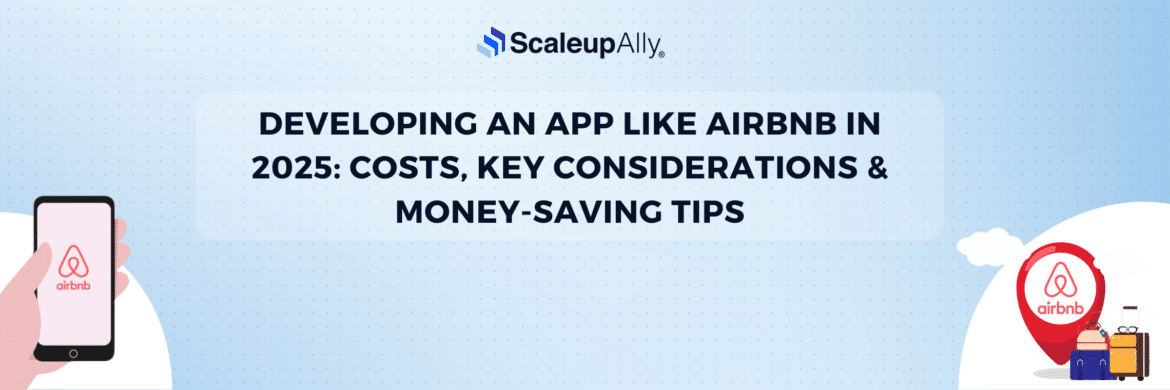
Developing an App Like Airbnb in 2025: Costs, Key Considerations & Money-Saving Tips
Discover the cost to build an app like Airbnb, key factors, app types, and smart ways to optimize development expenses for better ROI.
Suprabhat Sen
Jun 29 ,
10 min read
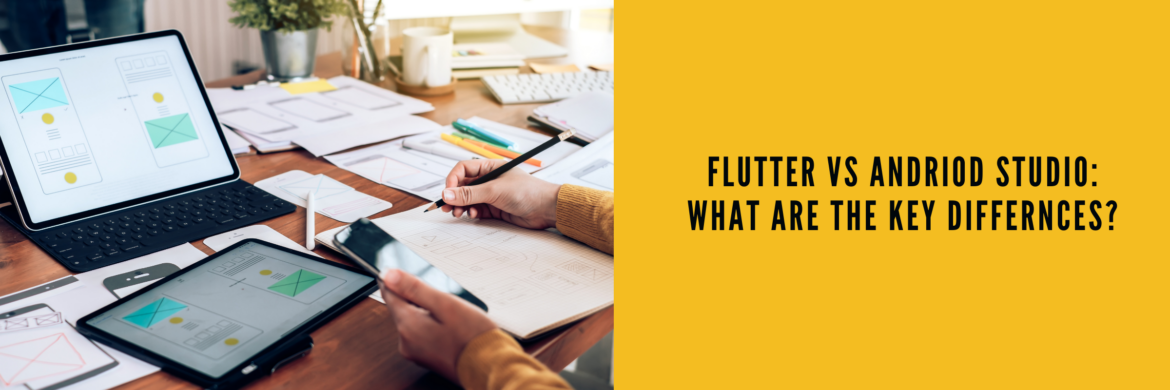
Flutter vs Android Studio: What are the Key Differences?
Flutter vs Android Studio: Wondering which technology to choose to build your next app. Here is a detailed guide that will help you make a decision.
Suprabhat Sen
Jun 28 ,
14 min read

